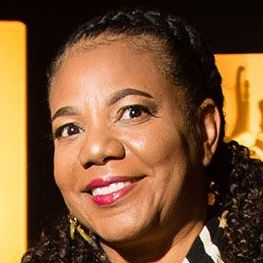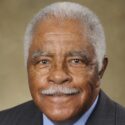 Emory University’s Woodruff Library has launched a new exhibit called “Framing Shadows: Portraits of Nannies from the Robert Langmuir African American Photograph Collection.” The exhibition includes photos from the 1840s to the 1920s that depict African American caregivers posed with the White children of their employers.
Emory University’s Woodruff Library has launched a new exhibit called “Framing Shadows: Portraits of Nannies from the Robert Langmuir African American Photograph Collection.” The exhibition includes photos from the 1840s to the 1920s that depict African American caregivers posed with the White children of their employers.
The photos were collected from the Robert Langmuir African American Photography Collection in Emory’s Stuart A. Rose Manuscript, Archive and Rare Book Library. This extensive collection contains more than 12,000 photographs showing African American life from 1840 to 1970.
“It is impossible to look at these portraits today without wondering what went on in the minds of the African Americans who were asked to sit perfectly still, while lighting and props were arranged for portraits not made for them, but for the White children they held,” said Kimberly Wallace-Sanders, the exhibit’s curator and an associate professor of American studies and African American studies at Emory.
Dr. Wallace-Sanders encourages viewers of the exhibit to look past their initial reactions when viewing the images. For example, a quick glance at these photos may cause a viewer to see levels of warmth, affection, and motherhood. However, a closer examination of the body language, facial expressions, and clothing of the African American caregivers can show another story.
“This is the most complex interracial relationship there is,” said Dr. Wallace-Sanders. “The stereotypical narrative emphasizes devotion and loyalty. But I want people to look a little deeper and ask some additional questions. Does this woman have children of her own? Who is taking care of her children? Will she even get to see the portrait that was made for her employer’s family?”
According to Dr. Wallace-Sanders, many of the nannies depicted in these images are anonymous; the backs of the photos often bear the child’s name, but not the caregivers. Most of the information about the relationship between these nannies and their charges comes from the White family’s perspective.
“Biographical information about the women is hard to come by. The narrative that we have heard is, ‘she was like a mother,’ or ‘she was like family,'” said Dr. Wallace-Sanders. “But they don’t know her first or last name, whether she was married or had children, or where she lived.”
Dr. Wallace-Sanders hopes that by launching “Framing Shadows,” visitors with relatives who served as nannies will come forward with more information about their stories.
“We know so little about these women, aside from what the White children as adults remember about them,” said Dr. Wallace-Sanders. “I hope by making these images public, more information will come up.”
Dr. Wallace-Sanders has served as Emory faculty member since 1999. She holds a bachelor’s degree in English from Oberlin College in Ohio, a master’s degree in English from Brown University in Providence, Rhode Island, and a Ph.D. in American cultural studies from Boston University.











